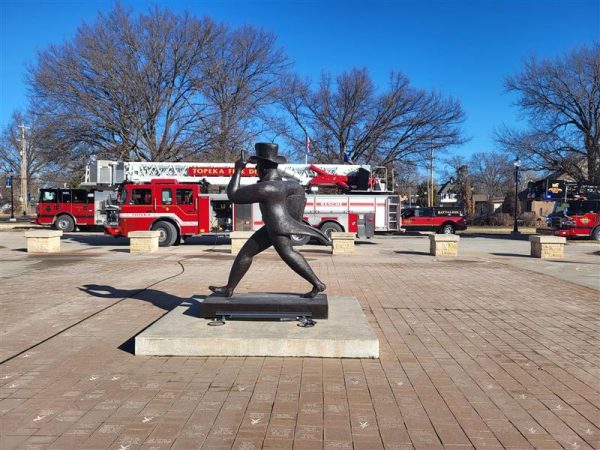Search continues for biochemistry professor with right properties
It seems that hiring a biochemistry professor is just as difficult as studying to become one.
For the past two years a committee led by Sam Leung, associate chemistry professor, has searched for a quality successor for retiring professor Janice Barton. Barton has taught biochemistry at Washburn University since 1981 and is currently undergoing a phased retirement.
The committee, which is made up primarily of chemistry and biology faculty, has implemented certain requirements to ensure a worthy successor. In addition to having a Ph. D in chemistry, whoever fills the position will also need experience or an education specific to biochemistry as well as an interest in performing undergraduate research in biochemistry. The candidate must also speak English.
“Students have a difficult enough time learning chemistry without having to learn another language at the same time,” said Stephen Angel, associate professor. “Also, they must have an understanding of biochemistry and be able to communicate that understanding effectively.”
The search has been going on for two years and is expected to take another year. Each year, the committee receives 20 to 30 applications. The process begins with advertisements detailing the positions in the classified sections of both “Chemical and Engineering News” and the “Journal of Higher Education.” Once the applications are received each committee member reviews the application, résumé, letters of recommendation, statements of teaching philosophy and research plans of each applicant.
The field is then narrowed to six applicants who have their listed, and sometimes their unlisted, references called. Next, the committee submits two names to the dean, who decides whether or not to forward the names to the vice president of academic affairs. The VPAA invites the candidates to Washburn to give two sample lectures. One is a lecture on a biochemistry topic such as metabolic pathways that is open-ended enough for the applicant to demonstrate their knowledge of biochemistry. The other is a presentation on a research topic of the applicant’s choosing. The lectures are public and students are especially invited to come and give feedback. The rest of the applicant’s day is spent meeting with important people across the campus that they would be working with. During the course of the search six applicants have made it to this stage, where the committee decides whether or not to extend a job offer.
Candidates have come in from all across the country. Some are recent graduates, some have done post-doctorate research, some have teaching experience and some have both research and teaching experience. A few of the candidates have been offered the position but have declined, saying that as much as they would love to work at Washburn they would be accepting jobs closer to their families and homes.
As the search continues, Barton has remained closely involved with the process. She does not serve on the committee as per university rules, but she interviews applicants, observes the lectures and provides valuable feedback.
Everybody involved is confident that a suitable candidate who will meet the high standards and expectations Washburn places on its faculty will be found soon.
Your donation will support the student journalists of Washburn University. Your contribution will allow us to purchase equipment and cover our annual website hosting costs.










